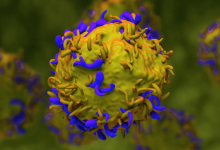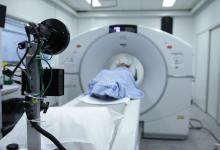Best of 2018: Dealing with Drug Reps - Dead or Alive Save

Several years ago, long before promotional lectures, I traveled for a series of lectures. I flew north for 4 days and 4 lectures, 2 at major university programs and 2 dinner lectures to local rheumatologists.
The first lecture went well but the weather turned bad, with a snow storm in the overnight forecast. Hence my host, a local drug rep, suggested we drive at night to beat the snow storm and get to the next city for the 10 am University lecture the following morning.
The drive became increasingly stressful as the snow came harder, faster and blew sideways. This was compounded by the conversation. After answering 12 questions about his rheumatology product, the drug rep – a talker – felt compelled to cover a range of topics not on my menu; including family problems, being a soccer coach and his recent brush with heart issues and cardiac catheterization.
The one-hour drive felt like a week in Cleveland. We checked in, I was given the wrong (smaller) room 117 and the rep had the bigger suite 202, with the Jacuzzi The rep called and apologized, but I said him there was no need to swap as I just needed a good bed to sleep in. We agreed to meet at 8:45 in the morning before heading to Rheumatology Grand Rounds.
However, the rep never showed up the next morning. I waited 15 minutes and called his room, but no answer. I repeat this a few times and after 30 minutes, I went to the hotel manager who confirmed that the rep had not yet checked out, his car was still parked underground and there was no answer when they called his room 202.
Even though it was now about 45 minutes before lecture time, I went with the manager to investigate this further. My imagination was creating all kinds of scenarios; none of which were gratifying. Maybe he was somewhere else, like in another room? Could this have been a Jacuzzi gone bad story? Maybe he was trapped in one of those wall-unit murphy beds? Maybe worse, he may have had "the big one", a bad cardiac event?
We went to the 2nd floor but didn’t need to put our ears to the door. We could hear the TV blaring out in the hallway. We banged on the door to room 202, but no answer.
The manager pulled out his master electronic key card and opened the door, but only 2 inches as the security latch was on. We yelled loudly into the room, but no response was returned.
At this point I should’ve bailed out and taken a taxi to the university. One – I don’t want to know what’s behind that latched door. Two – I’ve got a lecture to give in 30 minutes. Three - if something bad, evil or morbid is found, I’m the only one who knows the guy (and I don’t really know the guy). Meaning I’m going to have to deal with the authorities, call the wife, or make an official “statement” or give my alibi.
I know I’m supposed to travel with bail money, but never thought an alibi was part of the deal.
I stayed as we devised ways of breaking down the door. After the ninth try, I kicked the door in, it slammed against the closet with a boom, at just the right timbre to awaken up the sleeping drug rep from his catatonia!
He was disoriented, apologetic and said he was having a sleep problem. After confirming he had no diabetic, cardiac, alcohol or medical issues. I left him and went to the morning program at the medical school.
From that moment on, I have always insisted on taxi’s or other professional drivers when traveling, lecturing, etc.
I have great respect for pharmaceutical sales representatives (PSR) whose important jobs are often riddled with a multiplicity of crazy tasks, personalities and fickle physicians. It’s important to foster or define these relationships. I do so with my “12 rules for PSR’s” (you can down load these here). All new reps are given this one sheet list that defines my expectations, policies and preferred behaviors when they wish to call on my office.
- No scheduled appointments; If I have time, I will see you
- NO talking with my patients
- Deliver only the samples requested
- Do NOT go through my staff to influence me
- Don’t knock the competition or their products
- Do NOT litter my office with your pamphlets or patient info
- Do NOT double-team me – 1 rep, 1 visit per product.
- No meals…No food…..No gifts
- Don’t try to teach me about the research I did or teach on
- Don’t ever say “can you give me 3 scripts”
- PSRs Don’t speak at CME conferences
- PSRs Don’t influence education content
I also have my “rules” for engagement on a project or publication that include the following: 1) I need to be involved from the start; 2) I need to have control/input over content; 3) I must be very interested in the subject/project; 4) I need to approve who is leading the project (if not me); and 5) there must be a contract wherein I will state my consultation rate (also known as “fair market value”).
It’s highly adviseable to have rules for how and when you engage the pharmaceutical industry. What will you do when asked by the pharmaceutical industry to attend an advisory board, give a promotional talk, or be an author on one of their trials?
Letting your wishes and preferences be known, in the form of published or easily recanted rules, is both respectful and productive for you and those you partner with.
By the way, this blog could have been written by a drug rep about a KOL (key opinion leader) he/she was ushering around and who may have similarly disappeared or died. Imagine that - What to do with a dead KOL?
- Alert the media, cancel the clinic and where’s the honoraria and expenses.










If you are a health practitioner, you may Login/Register to comment.
Due to the nature of these comment forums, only health practitioners are allowed to comment at this time.